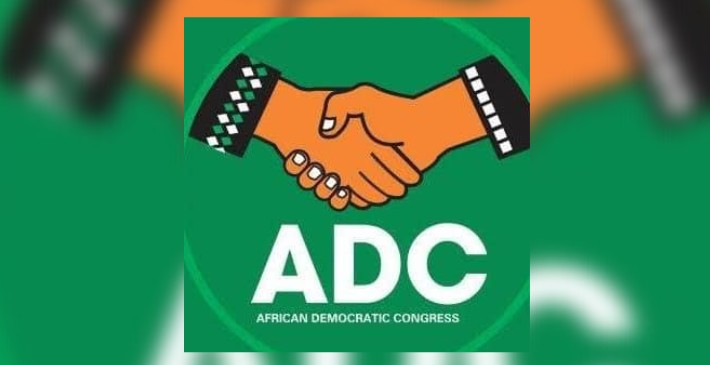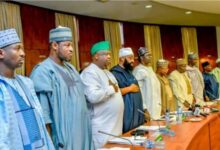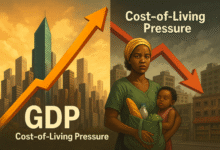
In what may become the most consequential political realignment since Nigeria’s Fourth Republic began, a broad coalition of opposition political actors—including ex-Presidents of the Senate, former governors, ministers, and presidential aspirants—has adopted the African Democratic Congress (ADC) as its unified platform ahead of the 2027 general elections.
This strategic move, announced in Abuja by former Senate President and now interim ADC National Chairman, Senator David Mark, is being hailed by its proponents not merely as a power play but as an ideological rebirth of Nigerian opposition politics—one aimed at recalibrating democracy, restoring internal party discipline, and reasserting the supremacy of the people in governance.
But will it hold?
The ADC Pivot: Why ADC? Why Now?
After failed attempts to register a new political party under the name All Democratic Alliance (ADA)—largely due to delays and resistance from the Independent National Electoral Commission (INEC)—the coalition circled back to an earlier negotiation with the ADC. This decision signals not only strategic pragmatism but also reflects growing frustration among political veterans with the crumbling structures of legacy parties like the People’s Democratic Party (PDP) and the perceived autocracy within the ruling All Progressives Congress (APC).
According to party insiders, the ADC was selected for its ideological roots, existing registration, and perceived neutrality. Crucially, it offers an already available legal and operational structure for the coalition to hit the ground running.
Key Power Players: A Grand Assembly of Disenchanted Titans
The unveiling of the coalition was nothing short of a political spectacle. Heavyweights from across the political spectrum—former Vice President Atiku Abubakar, Labour Party’s Peter Obi, former Kaduna governor Nasir El-Rufai, former Minister of Interior Rauf Aregbesola, ex-Transportation Minister Rotimi Amaechi, and former APC chairman John Oyegun—stood on a common stage, united by shared disenchantment and a hunger for political restoration.
Former Osun State Governor, Rauf Aregbesola, accepted the post of interim National Secretary after initial hesitation, delivering a speech that reverberated across Nigeria’s political landscape. In a clarion call for ideological clarity, he decried the decay of party systems in Nigeria, calling for a political vehicle rooted in discipline, justice, democratic values, and public accountability.
“A political party is not a vehicle for opportunism,” he said. “It is a living institution built on values, guided by ideals, and accountable to the people it seeks to serve.”
What Does This Mean for the PDP and APC?
For the PDP, the move signals a deepening internal crisis. The group, operating under the umbrella of Concerned Leaders of the PDP, minced no words in its communique. It described the party as “a shadow of its old self,” weakened by internal divisions and external state pressure.
The coalition’s decision effectively triggers a “controlled defection” of PDP stalwarts to the ADC, with David Mark stating explicitly that the group’s mission is “beyond gaining political power” and about “rebuilding the guardrails of our democracy.”
For the APC, the emergence of a unified opposition comes at a time of mounting socio-economic discontent, inflationary pressures, naira volatility, and national insecurity. The party now faces a reinvigorated opposition bloc armed not just with rhetoric, but with organizational structure, star power, and increasing public frustration.
The Political Architecture: Will It Hold?
While the coalition’s emergence is being celebrated by many as a watershed moment, significant hurdles remain:
- Ideological coherence: Can such a diverse group—spanning conservatives, progressives, technocrats, and populists—truly rally around a common set of beliefs?
- Funding and grassroots mobilisation: Does the coalition have the war chest and local machinery to match the APC’s ground game?
- Trust deficits: Will personal ambition, historical rivalries, and intra-coalition suspicion derail its goals before 2027?
Economic and Democratic Implications
From a macroeconomic perspective, the coalition’s entry into the electoral field may introduce policy diversity and pressure the APC to accelerate reforms—especially in key areas like subsidy removal fallout, FX market stabilization, and the cost-of-living crisis.
From a democratic standpoint, the move may help prevent the feared descent into a one-party state, ensuring competitive politics and offering Nigerians a viable alternative to the current economic trajectory.
The Big Tent Vision: A New Era or Familiar Rhetoric?
Senator Mark described ADC’s adoption as “the beginning of a historic journey,” invoking a vision of inclusivity, youth participation, and ideological fidelity. He promised a party that values both “the wisdom of the old and the energy of the youth.”
“We are not just here to win elections,” he stated. “We are here to revive the soul of the Nigerian democratic experiment.”
But history tempers optimism. Nigeria has seen big-tent coalitions before—remember the CPC-ACN-ANPP merger that birthed the APC in 2013? What followed were years of internal wrangling and policy incoherence.
Whether this ADC-led opposition coalition can avoid a similar fate will be the defining question of Nigeria’s 2027 electoral cycle.
Bottom Line
The adoption of ADC as the political vehicle for a united opposition may not be the silver bullet to Nigeria’s political challenges—but it is a thunderclap in an otherwise complacent political landscape.
If the coalition can translate its impressive lineup into credible governance alternatives and robust party discipline, it may well signal a reawakening of Nigeria’s democratic soul.
Until then, Nigerians will be watching—not just for speeches and declarations, but for structure, sincerity, and results.











